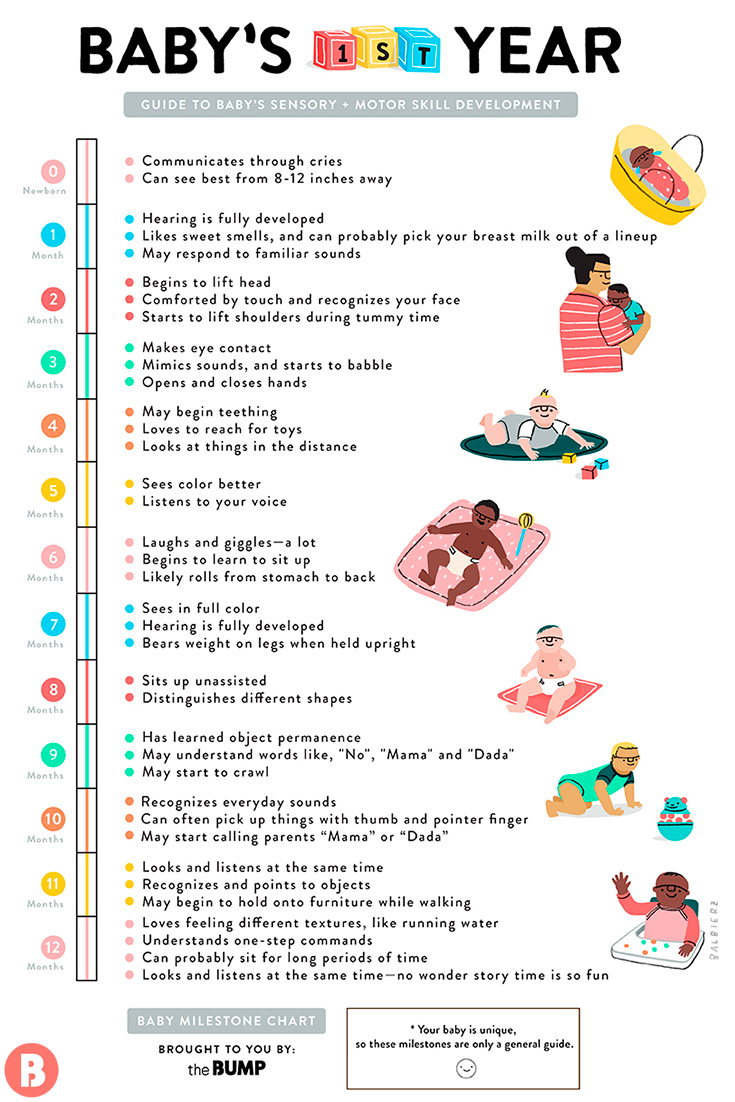
Watching your baby grow and develop is an exciting experience for every parent. Every baby is unique and reaches milestones at their own pace. However, there are certain developmental milestones that most babies achieve at similar ages. Tracking your baby’s milestones is important as it can help you identify any potential delays or concerns.
Table of Contents
What are Infant Milestones?

Infant milestones are developmental achievements that your baby reaches during the first years of life. These milestones include physical, cognitive, social, and emotional developments. Tracking milestones can help you monitor your baby’s growth and identify any potential concerns.
Physical Milestones

Physical milestones include movements and motor skills such as rolling over, sitting up, crawling, standing, and walking. Most infants develop these skills in a similar order, although the timing may vary. For example, some babies may start walking as early as 9 months, while others may not walk until 15 months.
Cognitive Milestones

Cognitive milestones refer to mental and intellectual developments such as learning to problem-solve, understand cause and effect, and recognize familiar faces and objects. Infants develop these skills by exploring their environment and interacting with people around them.
Social and Emotional Milestones

Social and emotional milestones include the ability to interact with others, express feelings, and develop social skills. These milestones are crucial for building relationships with others and can affect a child’s mental health and well-being in the future.
When Should You Expect These Milestones?
While every baby develops at their own pace, there are general timelines for when to expect certain milestones. Here is a rough guide to the developmental milestones you can expect:
- 1 month: Can recognize familiar faces and objects.
- 2 months: Can hold head up and make eye contact.
- 3 months: Can roll over, reach for objects, and smile.
- 6 months: Can sit up, crawl, and babble.
- 9 months: Can stand up, walk with support, and say “mama” or “dada”.
- 12 months: Can walk independently, say a few words, and follow simple instructions.
- 18 months: Can run, climb stairs, and speak in simple sentences.
- 24 months: Can jump, kick a ball, and use pronouns like “I” and “me”.
What if Your Baby is Not Meeting Milestones?

If your baby is not meeting certain milestones, it is important to talk to your pediatrician. They can assess your baby’s development and provide guidance and support. Early intervention and therapy can be crucial in helping your baby catch up and reach their full potential.
Tracking Your Baby’s Development

Tracking your baby’s milestones can be a fun and rewarding experience. You can use a milestones chart to keep track of your baby’s progress and celebrate their achievements. There are many resources available online, including printable charts and milestone trackers.
Conclusion
Infant milestones are an important part of your baby’s growth and development. By tracking your baby’s milestones, you can identify any potential concerns and provide the necessary support and intervention. Remember that every baby is unique and develops at their own pace. Celebrate your baby’s achievements and enjoy watching them grow!
Frequently Asked Questions
What if my baby is not meeting certain milestones?
If your baby is not meeting certain milestones, it is important to talk to your pediatrician. They can assess your baby’s development and provide guidance and support. Early intervention and therapy can be crucial in helping your baby catch up and reach their full potential.
Should I be concerned if my baby is not meeting milestones at the same time as other babies?
Not necessarily. Every baby develops at their own pace, and some babies may reach certain milestones earlier or later than others. However, if your baby is significantly delayed in certain areas, it is important to talk to your pediatrician.
Is it true that premature babies may reach milestones later?
Yes, premature babies may reach certain milestones later than full-term babies. However, with the proper support and intervention, premature babies can still reach their full potential.
Is tracking milestones important?
Yes, tracking milestones is important as it can help you identify any potential concerns or delays. It can also help you celebrate your baby’s achievements and monitor their growth and development.
Where can I find resources for tracking my baby’s milestones?
There are many resources available online, including printable charts and milestone trackers. Your pediatrician may also have resources and advice on tracking your baby’s milestones.
